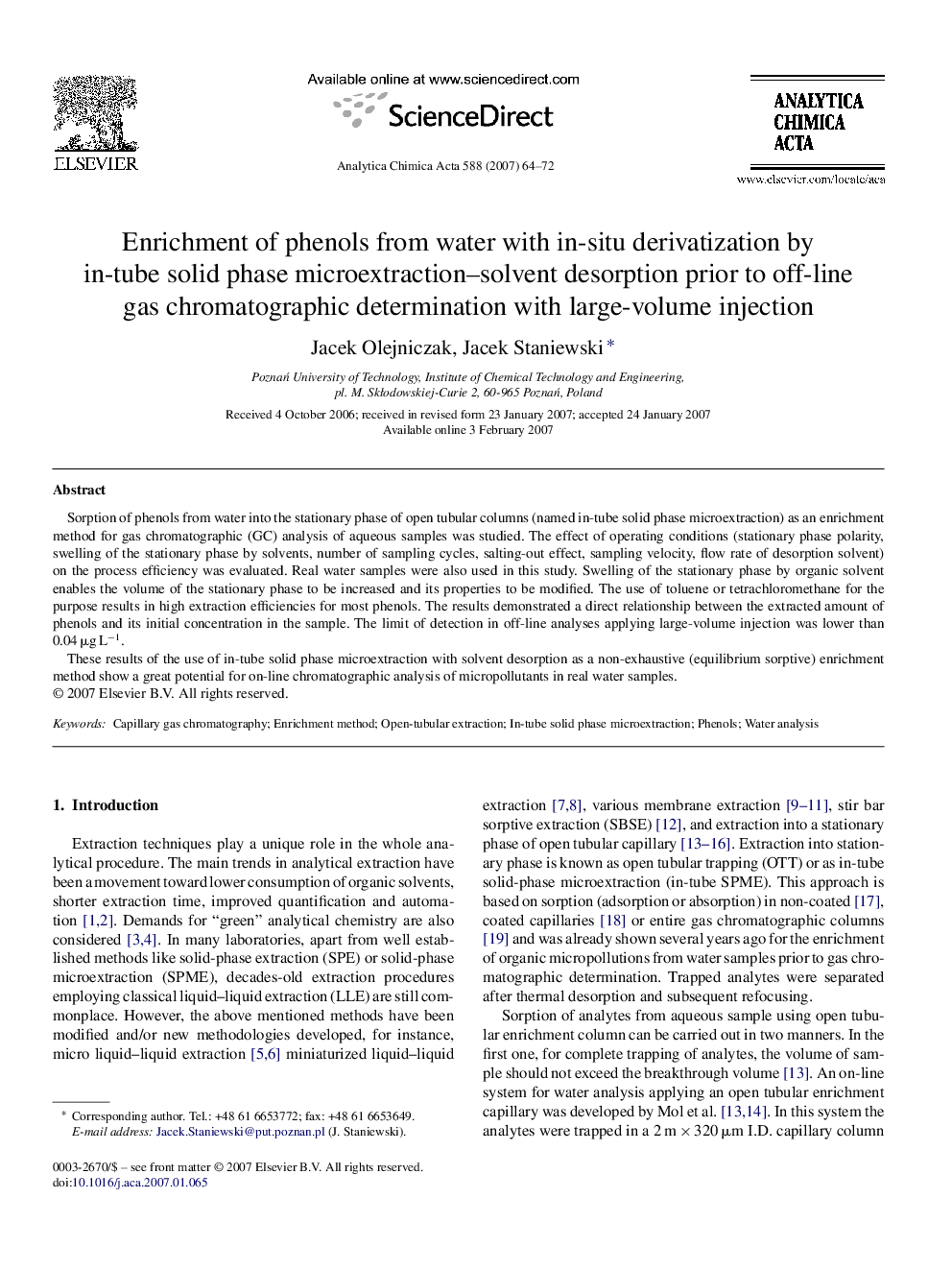| Article ID | Journal | Published Year | Pages | File Type |
|---|---|---|---|---|
| 1170029 | Analytica Chimica Acta | 2007 | 9 Pages |
Sorption of phenols from water into the stationary phase of open tubular columns (named in-tube solid phase microextraction) as an enrichment method for gas chromatographic (GC) analysis of aqueous samples was studied. The effect of operating conditions (stationary phase polarity, swelling of the stationary phase by solvents, number of sampling cycles, salting-out effect, sampling velocity, flow rate of desorption solvent) on the process efficiency was evaluated. Real water samples were also used in this study. Swelling of the stationary phase by organic solvent enables the volume of the stationary phase to be increased and its properties to be modified. The use of toluene or tetrachloromethane for the purpose results in high extraction efficiencies for most phenols. The results demonstrated a direct relationship between the extracted amount of phenols and its initial concentration in the sample. The limit of detection in off-line analyses applying large-volume injection was lower than 0.04 μg L−1.These results of the use of in-tube solid phase microextraction with solvent desorption as a non-exhaustive (equilibrium sorptive) enrichment method show a great potential for on-line chromatographic analysis of micropollutants in real water samples.
